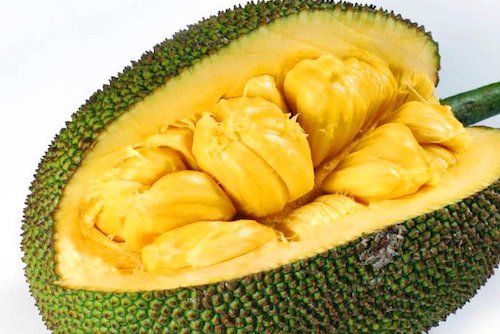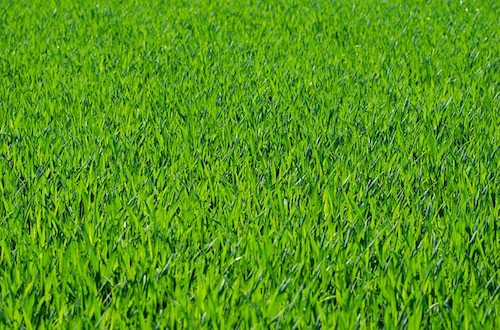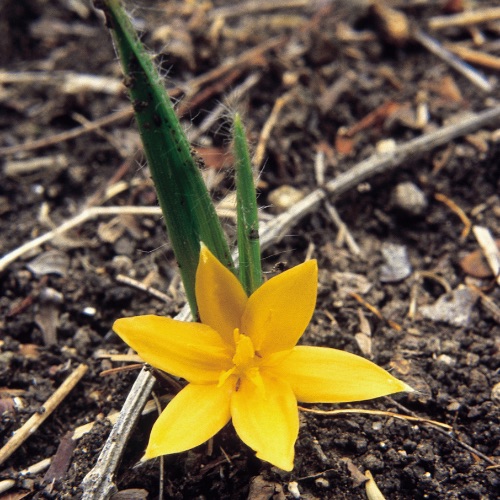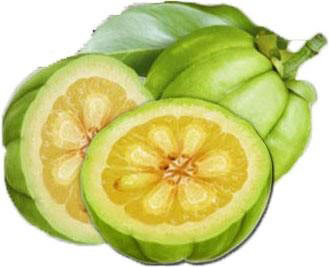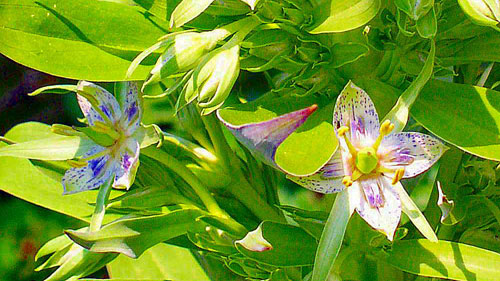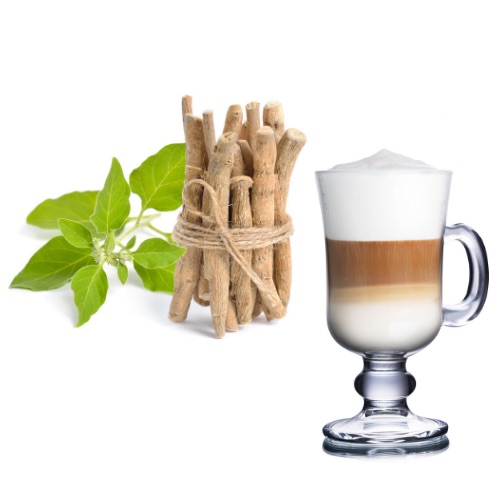Texts of Ayurveda recommend Lodhra for PCOS or PCOD, female infertility, female libido, acne, pimple, blackheads, wrinkles, and blemishes. It is also useful in weight management. It increases fairness and the glow of the skin.
Table of Content
Ayurvedic Medicinal Properties of Lodhra
Lodhra, a potent herb native to India, has long been revered for its significant benefits to female health. Historically used in Ayurvedic medicine, it has been found to have numerous applications that aid in the overall well-being of women.
Primarily, it’s a vital tool in managing menstruation-related issues. It aids in reducing excessive menstrual bleeding and discomfort, while also helping to regulate irregular cycles. Its astringent properties soothe irritation, potentially easing discomfort linked to conditions like leucorrhea.
Related articles
Best Ayurvedic Medicine PCOS / PCOD
Ayurvedic Medicine for Female Libido
Moreover, this herb plays a pivotal role in post-pregnancy care. Its natural compounds can aid in the recovery process, providing overall strength and vitality to the body post-delivery. Regular consumption may also support lactation, promoting the production of nutritious breast milk.
In addition, the herb’s potential in skincare is noteworthy. Its antioxidant and anti-inflammatory properties can combat common skin issues, resulting in a healthier complexion. Furthermore, it’s beneficial in fighting signs of ageing, such as wrinkles and fine lines.
This unique herb is a natural remedy that has the potential to address various aspects of women’s health, demonstrating the significant impact of botanicals in the realm of healthcare.
Lodhra is an evergreen medium-sized tree. The bark of this tree is light brown in color and is the main plant part used in the preparation of Ayurvedic medicines. This tree is generally found in Nagpur, Manipur, Burma, and Assam. It can grow in any type of soil and in full sun or shade.
Here is the list of major health conditions in which lodhra is used as medicine.
Lodhra for Female Infertility
Lodhra is a renowned Ayurvedic herb, historically used in addressing a spectrum of health concerns, including female infertility. This medicinal plant contains a wealth of benefits that could potentially aid in enhancing fertility in women, thereby increasing the prospects of conception.
One of the significant areas where this herb is believed to play a role is in achieving hormonal balance. Many fertility issues in women are rooted in hormonal imbalances, such as irregular menstruation and polycystic ovary syndrome (PCOS). Lodhra has been suggested to help maintain hormonal homeostasis, which is critical for regulating menstrual cycles and ensuring appropriate ovulation – key factors in enhancing fertility.
Furthermore, this plant is known for its possible impact on the female reproductive system. Conditions like uterine fibroids and endometriosis, which can act as roadblocks to conception, may be managed with lodhra. Its unique compounds are understood to support healthy functioning of the uterus, thereby promoting successful embryo implantation and growth (Bhatnagar M., et al., 2010).
Additionally, lodhra is recognized for its antioxidant properties. Oxidative stress, resulting from a disproportion between free radicals and antioxidants in the body, can negatively influence female fertility by causing damage to egg cells. By introducing antioxidants into the system, lodhra could potentially protect these cells, thereby improving egg quality and supporting fertility.
While it’s crucial to perceive this herb as a supportive supplement rather than a definitive cure, its potential role in improving female reproductive health and fertility cannot be understated. Its long-standing use in Ayurvedic medicine validates its potential value.
Reference:
Bhatnagar M., Sisodia S.S., Bhatnagar R. (2010). Antiulcer and antioxidant activity of Asparagus racemosus WILLD and Withania somnifera DUNAL in rats. Annals of the New York Academy of Sciences, 1191(1), 156-62.
Lodhra for PCOS
Lodhra, a notable Ayurvedic herb, has been traditionally used to manage various health concerns, including Polycystic Ovary Syndrome (PCOS). PCOS is a hormonal disorder that affects women of reproductive age, leading to irregular periods, excess androgen levels, and polycystic ovaries. This medicinal plant is known for its potential benefits that could assist in managing PCOS symptoms and improving overall reproductive health.
The herb is understood to play a vital role in restoring hormonal balance. One of the primary issues in PCOS is hormonal imbalance, which leads to irregular menstrual cycles and elevated levels of male hormones. Lodhra has properties that are suggested to help regulate hormonal balance, addressing some of the primary symptoms of PCOS.
Furthermore, this herb is known for its potential impact on insulin resistance, a key factor often associated with PCOS. Insulin resistance can lead to elevated insulin levels, which in turn stimulate the ovaries to produce more androgens. Regular use of lodhra is suggested to improve insulin sensitivity, thereby potentially reducing androgen production and ameliorating PCOS symptoms.
Lodhra also demonstrates antioxidant properties, which might have a supportive role in managing PCOS. Oxidative stress, associated with elevated levels of free radicals, is known to worsen the symptoms of PCOS. As an antioxidant, lodhra may help in combating oxidative stress, potentially improving the overall clinical presentation of PCOS (Sharma B., et al., 2019).
Reference:
Sharma B., et al. (2019). Symplocos racemosa bark extract mediated amelioration of polycystic ovary syndrome in Letrozole induced rats: probable biochemical and molecular mechanisms. Biomedicine & Pharmacotherapy, 112, 108590.
Lodhra for weight loss
Lodhra, a well-regarded Ayurvedic herb, has been traditionally used for numerous health applications, including weight management. This potent botanical, packed with medicinal properties, offers unique contributions to weight loss journeys, thereby supporting overall health and wellness.
One way this plant aids in weight reduction is through its potential impact on digestion. According to Ayurveda, efficient digestion is a cornerstone of maintaining a healthy weight. Lodhra is believed to have digestive properties, assisting in the proper breakdown and absorption of nutrients, and thus potentially contributing to weight loss.
Moreover, this herb has been attributed with astringent properties, which are believed to aid in removing excess fluids from the body. It’s suggested that these properties might contribute to weight reduction by helping manage water retention, a factor often overlooked in weight management strategies.
The plant is also known for its potential effect on blood sugar regulation. Studies suggest that it can help manage glucose levels, which in turn can reduce unnecessary cravings and overeating, assisting in weight control. (Panda S., et al., 2009)
Lastly, this herb’s potential impact on hormonal balance could be of significance for weight loss. Hormonal imbalances can often lead to weight gain or difficulty losing weight, particularly in women. By potentially aiding in the balancing of hormones, lodhra can contribute to a more effective weight loss process.
Lodhra for skin
In traditional Ayurvedic medicine, Lodhra, scientifically known as Symplocos racemosa, has long been recognized for its substantial health benefits, particularly in the realm of skin health. Rich in a myriad of bioactive compounds, it holds considerable potential as a natural skincare solution.
Lodhra’s potency for skin health lies in its astringent properties. The tannins present in the herb give it its characteristic astringency, which helps tighten the skin’s pores and reduce excess oil. This can be beneficial in managing conditions such as acne and oily skin. Moreover, its astringent properties are also useful in promoting wound healing and preventing skin infections, aiding the body’s natural healing processes.
Additionally, the herb is known for its antioxidant and anti-inflammatory properties. Oxidative stress, which results from an imbalance between free radicals and antioxidants, can have a damaging effect on the skin, leading to premature ageing and various skin disorders. By introducing antioxidants into the skin, Lodhra can help counteract the damaging effects of free radicals, thereby maintaining skin health and vitality (Gupta M., et al., 2012).
This plant also boasts anti-inflammatory qualities that can soothe inflammation and redness, particularly in conditions like eczema, psoriasis, and dermatitis. It could potentially calm irritated skin, provide relief, and enhance overall skin appearance.
Ayurvedic Medicinal Properties of Lodhra or Lodh Pathani
This herb is known by various names in India and has the botanical name Symplocos racemosa Roxb.
Hindi – lodhra
Bengali – lodhra
Marathi – lodhra
Gujarati- lodhara
Tamil – belli
Telagu- lodhuga
Kannada – pachettu
Malayalam – pachetti
Based on the principles of Ayurveda this herb has an astringent taste (Kashaya rasa). It acts as a body coolant (sheeta veerya). Lodhra is light to digest (laghu) and dries up body fat content (rooksha).
Action on Doshas
The bark of this herb balances Kapha dosha and pitta dosha. But in higher doses, it may vitiate Vata dosha.
Texts of Ayurveda explain the health benefits of this plant as follows.
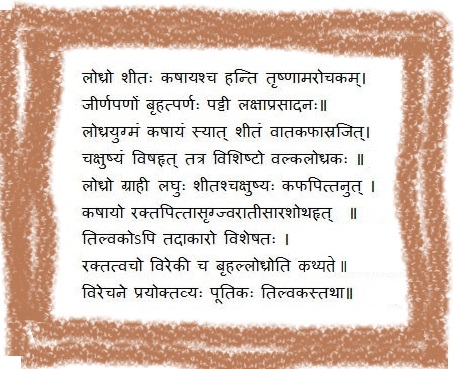
For PCOS and Female Infertility
Texts of Ayurveda recommend this herb to reduce inflammation of the uterus and regularise the menstrual cycle. It improves the health of the uterus and prevents repeated abortions. Usually, Kashaya or decoction of lodhra is given as yoni basthi (Basthi is a panchakarma treatment method) to enhance the health of the uterus.
Various researches have shown that this herb plays an important role in regulating FSH and LH hormones. It helps in the management of the menstrual cycle and also stimulates the ovaries to produce eggs.
Increased levels of androgens (male hormones) cause PCOS in women. Many studies have shown that lodhra acts against androgens and acts as the best herbal medicine for PCOS. Bark of lodhra balances female hormones (estrogen and progesterone) and improves the fertility of women. Phytoestrogens present in this herb help to reduce mood swings and reduces stress and anxiety.
Hence this herb has been added as a major ingredient in ayurvedic capsules for PCOS
In Obesity
This herb helps to reduce cholesterol and also shrinks body fat. Hence it is useful in reducing obesity. Women who suffer from PCOS are doubly benefited by this herb as it improves fertility and health of the uterus, also reduces body weight. This can be used for weight loss after delivery.
In Acne, Pimple, and Blemishes
This ayurvedic herb has anti-inflammatory (shothahara) properties and controls hemorrhages ( Shonitasthapana). Hence it is very useful in wounds, acne, pimple, and blemishes. It reduces pain and swelling.
In IBS and Colitis
This herb is used in Irritable Bowel Syndrome and Colitis to Prevent diarrhea. Usually decoction of the bark is used for this purpose.
In the eye and ear infection and inflammation
This herb reduces inflammation, pain, and secretions in conjunctivitis of eye and ear infections.
In swelling of gums (gingivitis)
Ayurveda scholars recommend Symplocos racemosa to reduce inflammation of gum in gingivitis.
How to Use Lodhra?
Only the bark of this tree is used for medicinal purposes. It is used in form of powder, decoction (Kashaya), or its extract is used in capsules and tonics.
Face pack
Lodhra powder can be mixed with other face pack bases like multani mitti, chickpea flour, or green gram flour. This can be also mixed with an ayurvedic herbal body scrub to exfoliate the skin. This face pack heals acne, pimple and reduces blemishes. It improves the glow of the skin and increases fairness. As it has Kashaya rasa or astringent taste, it helps to reduce wrinkles on the skin.
Mouth wash
Boil barks of this plant in water. The decoction thus obtained can be used as a mouth wash to keep gums healthy. It prevents receding of gums and also reduces inflammation and pain in the gums.
To accelerate wound healing
Ayurveda acharyas recommend applying the paste of lodhra bark on wounds to accelerate the healing process. The bark of this plant is washed and rubbed on a grinding stone to get a thin smooth paste. This has to be applied to wounds. Precautions have to be taken to prevent contamination of paste. This paste reduces ph level and fastens the wound healing by reducing inflammation.
To stop bleeding
People with high pitta experience frequent nose bleeding. Instilling drops of decoction of this plant’s bark help to relieve this problem.
In skin rashes
Pitta constitution persons experience burning red rashes all over the body. Lodhra Kashaya (decoction) can be applied all over the body in this condition. It cools the skin and also reduces rashes.
In Fever
Texts of Ayurveda recommend applying the paste of Symplocos racemosa bark on the forehead of a person who suffers from fever. Due to its cold potency, it reduces body temperature and also relieves headaches.
Who should not use Lodhra?
Men should be very cautious while using this herb as it may reduce testosterone levels due to its anti-androgenic activity. It is very important to consult a qualified ayurvedic physician before using this herb. Self-medication is a strict no.
People who suffer from constipation and sluggish digestion should not use this medicinal plant as it may exaggerate constipation and cause stomach discomfort.
Dosage of Lodhra
Powder of this herb can be used in the dose of 2-5 gms. And the dosage for decoction is 50 to 100 ml per day.
Chemical composition of Lodhra
Alkaloids like Loturine , Colloturine , Loturidine, and other glycosides are chemical constituents of Symplocos racemosa Roxb..
Reference https://pubmed.ncbi.nlm.nih.gov/26851499/
(WhatsApp Dr.Savitha Suri @+ 91 6360108663/ to know more about ayurvedic treatments and remedies )
Author: Dr.Savitha Suri , Consultant Ayurvedic Physician
Call us at +91 9945995660 / +91 9448433911
Whats App + 91 6360108663/

